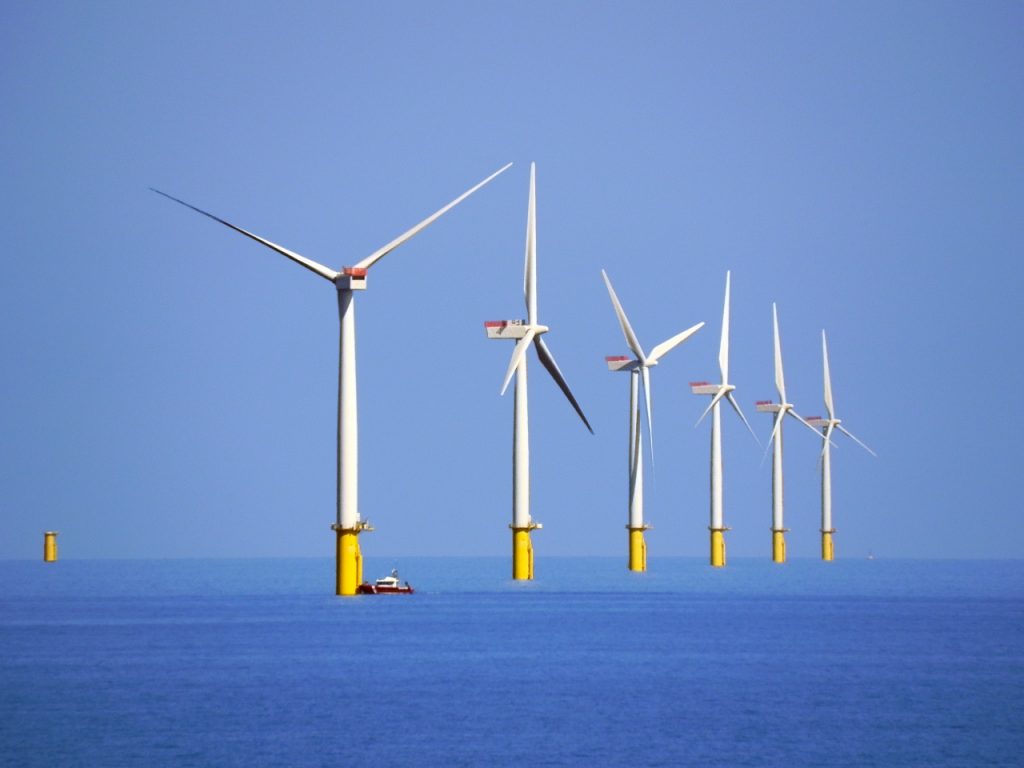Massachusetts legislators have passed two different plans to expand offshore wind power.
The commonwealth’s House of Representatives approved a bill that would change how the state procures electricity to favor industrial offshore wind and would give tax credits to project developers. The Senate subsequently passed a broader green energy bill that has provisions promoting offshore wind.
House Plan Problems
The administration of Gov. Charlie Baker opposes the House bill.
The plan will drive up costs in the state, said the state Executive Office of Energy and Environmental Affairs in a statement, The Daily News of Newburyport reported.
“[The proposal] hits millions of Massachusetts households with a utility bill increase at a time when energy costs are already rising rapidly, and could create a conflict of interest by involving legislators in offshore wind contract negotiations,” said the statement.
The Baker administration also faults the House bill for lifting a cap on bids for offshore wind energy projects and imposing a new surcharge on natural gas bills to subsidize the cost of expanding renewable energy.
Expansive Senate Bill
The Senate bill calls for doubling the amount of offshore wind energy generated for Massachusetts over the next decade.
The proposal provides $250 million in government support for so-called clean energy expansion, electric vehicle incentives, and electric vehicle charging infrastructure.
Under the Senate bill, zero emissions vehicles would be the only new cars and pickups sold in Massachusetts as of 2035. The Massachusetts Bay Transportation Authority would only be allowed to purchase or lease zero-emission buses starting in 2028 and would be required to convert the entire fleet by 2040. The bill also allows specified cities to ban natural gas hook ups in new construction.
Bad for Fishing, Whales
The rapid expansion of offshore wind power will place fertile fishing grounds off-limits, said Jackie Odell, executive director of the Northeast Seafood Coalition, in a statement.
“This rush to lease and develop our ocean is coming at the expense of the health of our oceans and the existing users, fishermen,” said Odell.
One offshore wind farm approved by the federal government already faces legal challenges by fishing groups, says David T. Stevenson, director of the Center for Energy & Environmental Policy at the Caesar Rodney Institute.
“The Vineyard project recently approved by the feds faces five lawsuits over the likely abandonment of key commercial fishing grounds, increased vessel collisions, major impacts on the ability to conduct search and rescue missions, and interference with establishing ‘Take’ limits,” Stevenson said.
The lawsuits claim the Vineyard project will harm endangered and threatened species, says Stevenson.
“In addition, construction and operational noise will likely imperil critically endangered North Atlantic right whales, and migrating birds will face each turbine sweeping an area the size of eight football fields with blade tips moving at up to 180 miles per hour,” said Stevenson. “Seabed changes threaten the bottom of the ocean food chain. Even the federal agency that approved the project admits much smaller turbines will dominate the horizon view.”
‘Increased the Cost Estimate’
Ratepayers and taxpayers should also be concerned about the high costs of offshore wind, says Stevenson.
“As the founder of the American Coalition for Ocean Protection with members from North Carolina to Maine, I believe Massachusetts’ electric customers should be very afraid,” said Stevenson.
Offshore wind power costs much more than onshore wind and solar power, says Stevenson.
“A recently approved project off Delaware’s coast will produce electricity at five times the cost of onshore wind and solar,” said Stevenson. “Dominion Energy just increased the cost estimate of its proposed Virginia offshore project by 25 percent because of rising material cost. Massachusetts’ price caps should be kept.”
‘Controlled by Lobbyists’
Wind power makes no sense from a scientific perspective, says John Droz, founder of the Alliance for Wise Energy Decisions.
“Any time we add a new source of energy to the electric grid, there are three criteria that have traditionally always been applied: cost, reliability, and environmental impact,” said Droz. “Those are all very reasonable things, and looking at offshore wind objectively, not from a marketing perspective of a developer, offshore wind is a loser in all three of those criteria. The fact is there is no scientific evidence that wind turbines make any consequential difference in CO2 or the climate.”
Government rent seekers are pushing wind power, says Droz.
“This is pure politics,” said Droz. “The people who are controlling this are lobbyists—and as we’re speaking, they are in Massachusetts at the state capitol pushing this stuff, handing out fancy brochures presenting one-sided stories while promising legislators financial support in upcoming elections.”
Lobbyists have enticed legislators with claims they will be seen as champions of the environment for supporting offshore wind, says Droz.
“One of the big pushes by these lobbyists is that we need to do this to save the planet,” said Droz. “The legislators latch on because it is a form of virtue signaling—that’s indisputable. They want to stand up in front of their constituents and say, ‘I’m doing my part here to save the planet,’ despite the facts showing there is no merit to such claims, and industrial wind facilities, whether onshore or offshore, likely produce net environmental harms.”
The General Court must reconcile the two differing bills, and the final version could be vetoed by the governor.
Kenneth Artz (KApublishing@gmx.com) writes from Dallas, Texas.
